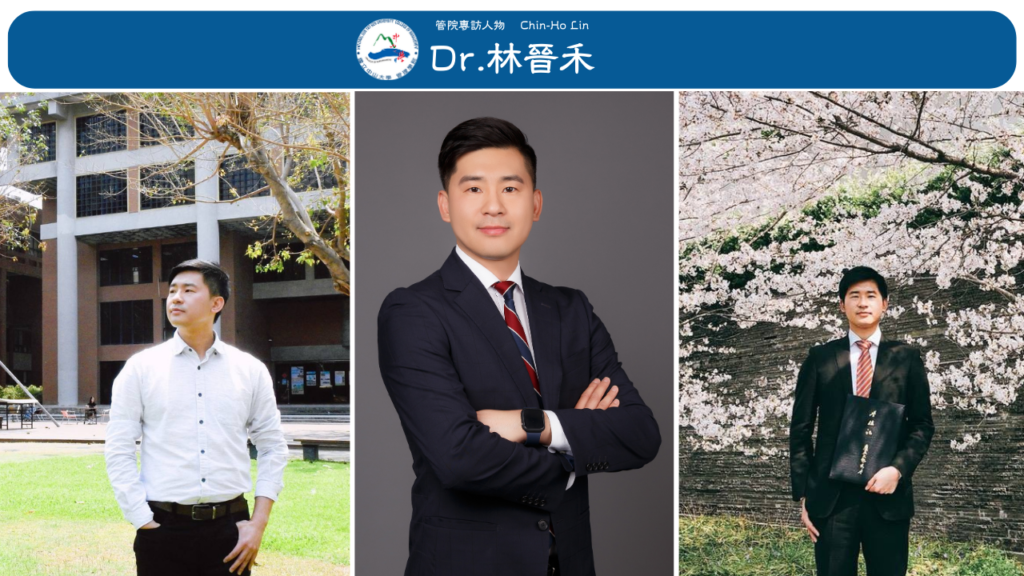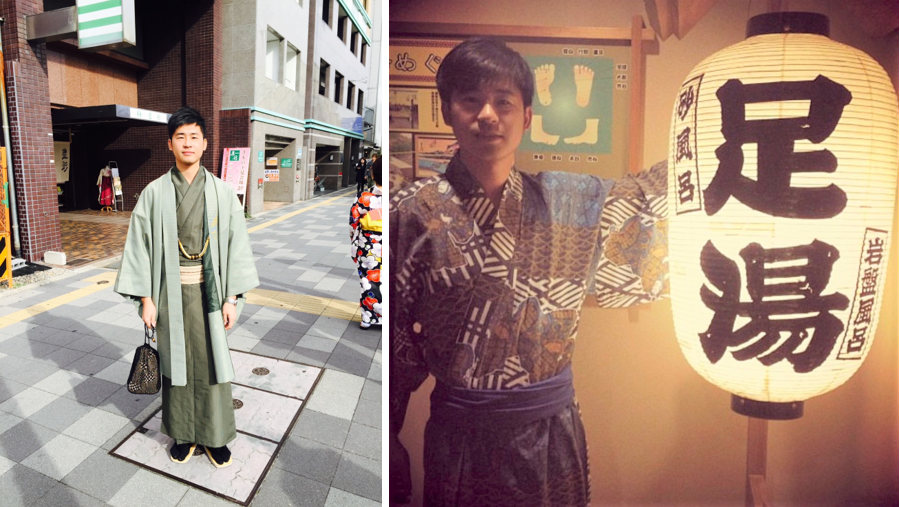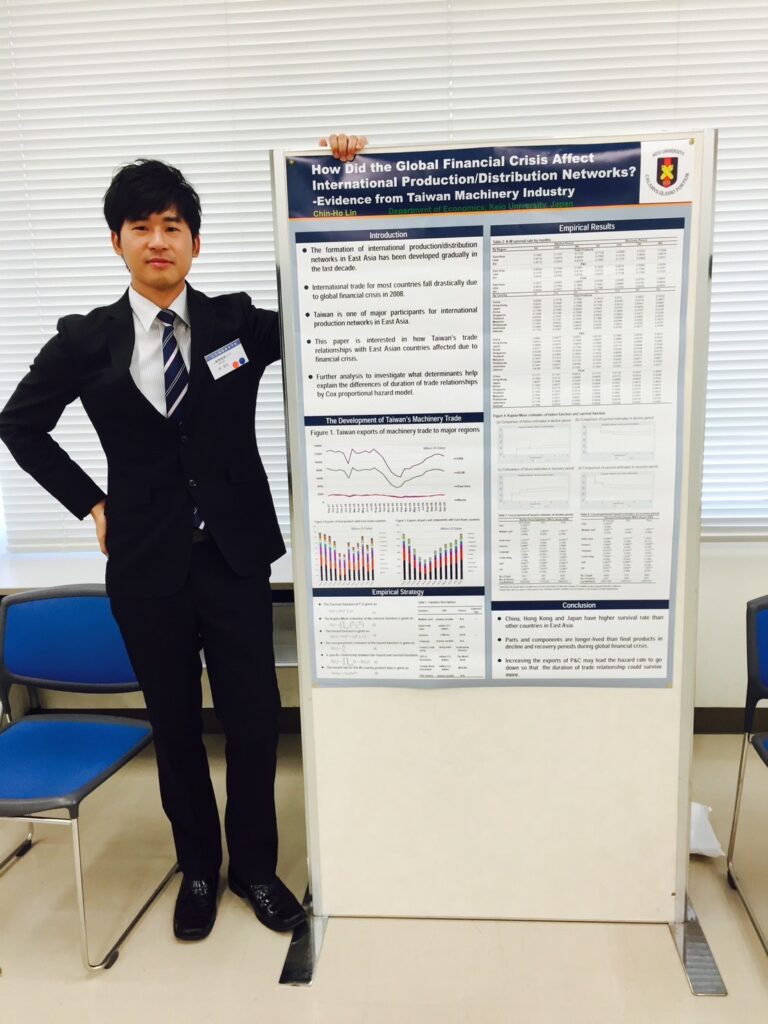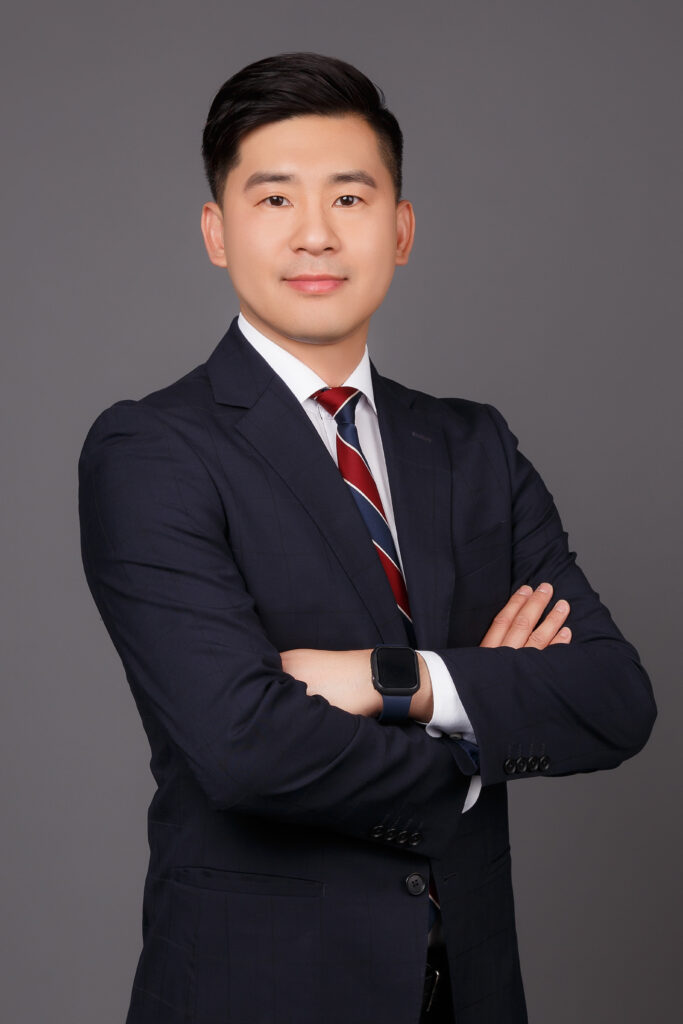It was almost bedtime in the camp. Some men were resting and chatting, others were lining up to take a shower, and one soldier who was reading a book on economics at night, a very different atmosphere from the surroundings.
The following day, he would have to go with the combat troops to drill and garrison a farm. Despite being in a very tough unit, he did not waste such a rare opportunity and tried to do everything well.
“It doesn’t matter how you fall; it’s how you get up that matters.” This soldier is Chin-Ho Lin, who is now an assistant professor in the Department of Business Administration at National Sun Yat-sen University. He has always kept this statement in mind, because his starting point was not one that most people imagine of scholars, who are expected to have top grades since childhood. He laughed at himself for only being able to get into the Department of International Trade at a private university as an undergraduate, while yearning for the academic achievements of his relatives who taught at universities.
“I’ve wanted to be a university professor since my freshman year of college.” Looking back on his past life, when he was about to leave the army, Chin-Ho Lin reflected that being a university professor requires a doctorate degree, but he didn’t even have a master’s degree. “If I want to achieve my dream, then what am I doing? Isn’t it time I start working hard to get ahead?”
Even though his starting point was not as good as others’, Professor Chin-Ho Lin decided to start his new life against the odds.
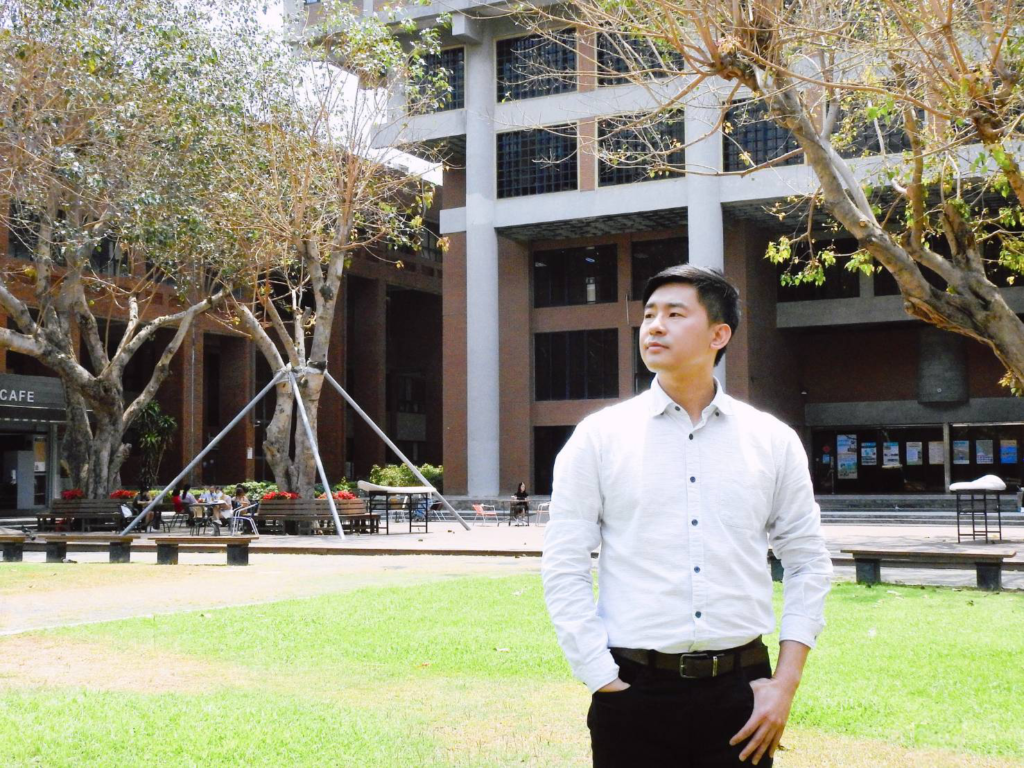
But, in the military environment, the seniors and peers come from all over, and higher-ups might make life difficult. Especially with Professor Lin being assigned to the combat unit, it was not even a given that he would be discharged without issues, let alone be able to cultivate of a habit of study. What could he do to focus on exam preparation?
“Training is reasonable; what is unreasonable is torturing.” These were the words of Professor Lin’s father who always encouraged him, and he believes in them too. So even when he was assigned to the combat unit, when the commanding officers gave any orders, he was always eager to volunteer. He was so diligent that the commanding officers would say, “Does it always have to be Chin-Ho Lin? Have someone else do it!”
Doing his job well, taking the initiative to help his unit, and making good use of his time to study were the keys to his survival in the military. “If you can do well even here, then no matter what happens, you will have a chance to survive.”
Going half-way around the world to the United States and Japan
Lonely examinations in pursuing the dream of studying abroad
With hard work, Chin-ho Lin turned his fate around, and two months after being discharged from the military, he was admitted to National Chung Hsing University to pursue a master’s degree in Applied Economics. His goal was a Ph.D. from Boston University, but his advisor, Professor Kuo-Yi Chang, said to him, “Chin-Ho, your university is already private, and like most students, you want to study in the United States and become a university teacher – what is going to make you stand out?”
(Note: In the United States, it is not necessary to have publications in order to receive a doctoral degree, but in Japan, it is necessary to publish in order to graduate. For recent graduates in academic circles, having published articles is more advantageous for finding a teaching position.)
Professor Kuo-Yi Chang spoke frankly, but also pointed out the bright side: “To be competitive, the only advantage is the quality and quantity of your published papers.”
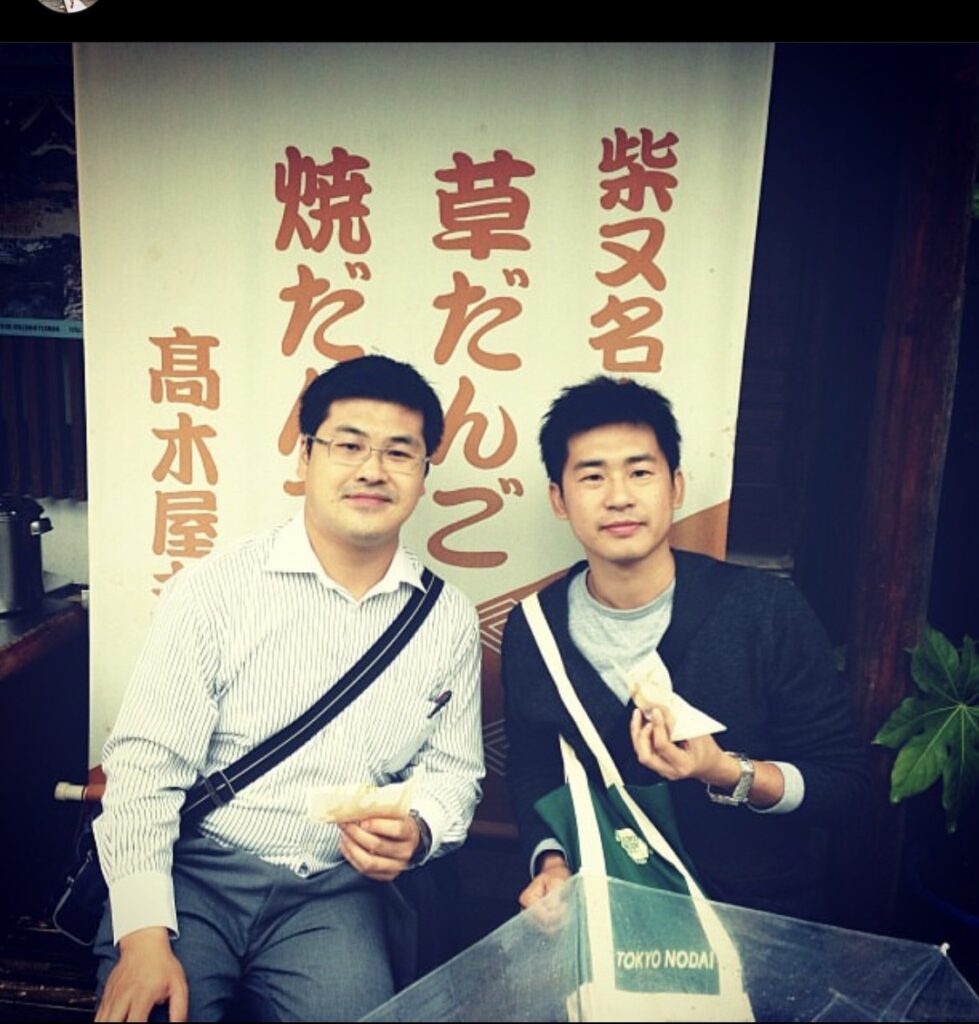
Professor Kuo-Yi Chang graduated from the Department of Agricultural Economics of the University of Tokyo, Japan. Therefore, he suggested that Chin-ho Lin also study in Japan and encouraged him to write his dissertation in English to make his dissertation more competitive and visible. Chin-ho Lin thought this made sense, so he prepared to study in Japan.
But at this point, he was frustrated. It turned out that another student that Professor Chang supervised not only performed better but also successfully submitted his master’s thesis to TSSCI (a core social science journal). By comparison, Chin-Ho Lin realized he didn’t perform so well, and he felt confused. Was he really suitable for academia?
In addition, given the declining birth rate, many relatives and friends of his advised against taking the academic route. However, his mother still supported his plan to study abroad and covered all the expenses of his studying in Japan, while his father was also very supportive of him pursuing a doctorate, so Chin-Ho Lin remained faithful to his dream.
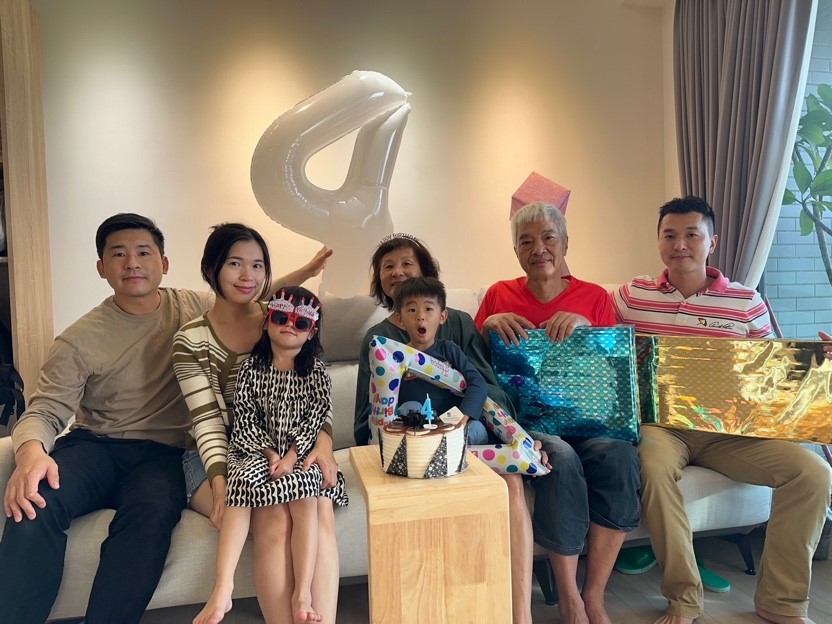
Chin-Ho Lin also aimed to study at the University of Tokyo; however, reality was cruel. In Japan, you need to find a supervising professor before applying for an interview at a university. In addition, unlike in the United States where you can apply to more than one school at a time, the tight examination timeline in Japan makes it almost like making one desperate bet. And this time, the bet did not pay off for Chin-Ho Lin.
Chin-Ho Lin did not give up; he just temporarily put his dream aside. He decided to try again the following year, and in the meantime, choose to go to the United States for a year to see.
He went to language school, and Chin-Ho Lin took to it like a fish to water. “America is great! The atmosphere is free, full of diversity and tolerance!” Professor Lin says. The United States is a country of great ethnic integration, respecting different cultures, and given his own bold personality, he especially liked the atmosphere and the way people get along with each other.
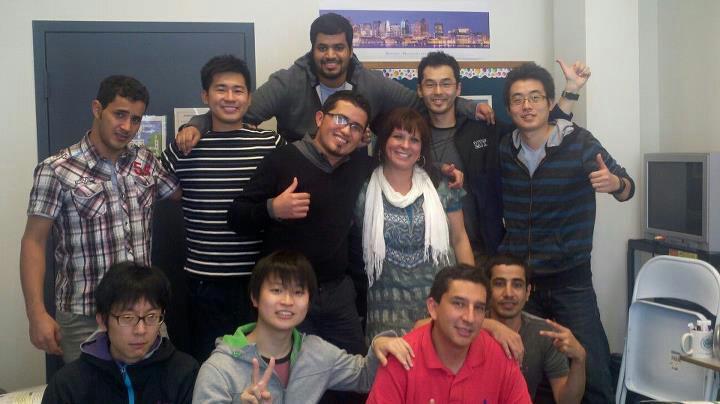
However, in the blink of an eye, it was time to take the entrance exam again. The second time, Chin-Ho Lin decided to bet on Keio University. “Actually, there was a lot of pressure.” For the month between the written examination to the interview results, he stayed in Japan alone, waiting to find out his uncertain future.
On Chinese New Year’s Eve, Chin-Ho Lin could only attend his family reunion by video call. Unable to go home to eat with his family, his New Year’s Dinner was eating Ichiran Ramen by himself.
Fortunately, Chin-Ho Lin was accepted into Keio University. He left the spirited United States to begin his study abroad life in strict Japan.
Couldn’t speak Japanese but received a doctorate from the prestigious Keio University?
What is surprising is that Chin-Ho Lin didn’t speak a word of Japanese, so how could he live in Japan? “I didn’t even know the fifty sounds,” Professor Lin shared. When he first arrived in Japan and he asked passersby for directions, they were scared to death when he started with “Excuse me…” So he realized he must learn Japanese.
Fortunately, “Keio University had English classes, so I was able to keep up with my studies, and I worked part-time,” said Professor Lin, who learned Japanese quickly through working. In addition to working as a research assistant and researcher at school, he was also brave enough to work in a Chinese restaurant. Interacting with the chefs and colleagues along with his willingness to make friends with people helped him improve his Japanese language skills.
Professor Chin-Ho Lin recommends studying in Japan for two reasons
Things to take into consideration about studying in Japan:
- The tuition is much cheaper than in Europe and the United States. In Japan, tuition is about 200,000 NTD a year, whereas in Europe and the United States, it may cost more than 1 million NTD.
- It is legal for international students in Japan to work part-time, but in contrast, international students with a student visa in the US can only work on campus, and if they work off-campus, they will become illegal workers and will be deported if they are discovered.
In other words, in terms of cost, you can save a lot of money on tuition, working part-time, and scholarships if you have them.
In terms of academics, studying for a doctorate also made Professor Chin-Ho Lin realize that many things have to be self-taught. You need to have the ability to research and learn on your own, and to think independently.
For example, to do research on global value chains and supply chains, he needed to use statistical software to run data analysis. Chin-Ho Lin’s advisor, Professor Fukunari Kimura, suggested that he learn a certain software to keep up with the research technology and the mainstream. However, instead of teaching him, Professor Kimura said bluntly, “I don’t know how to do that; that’s your business.”’
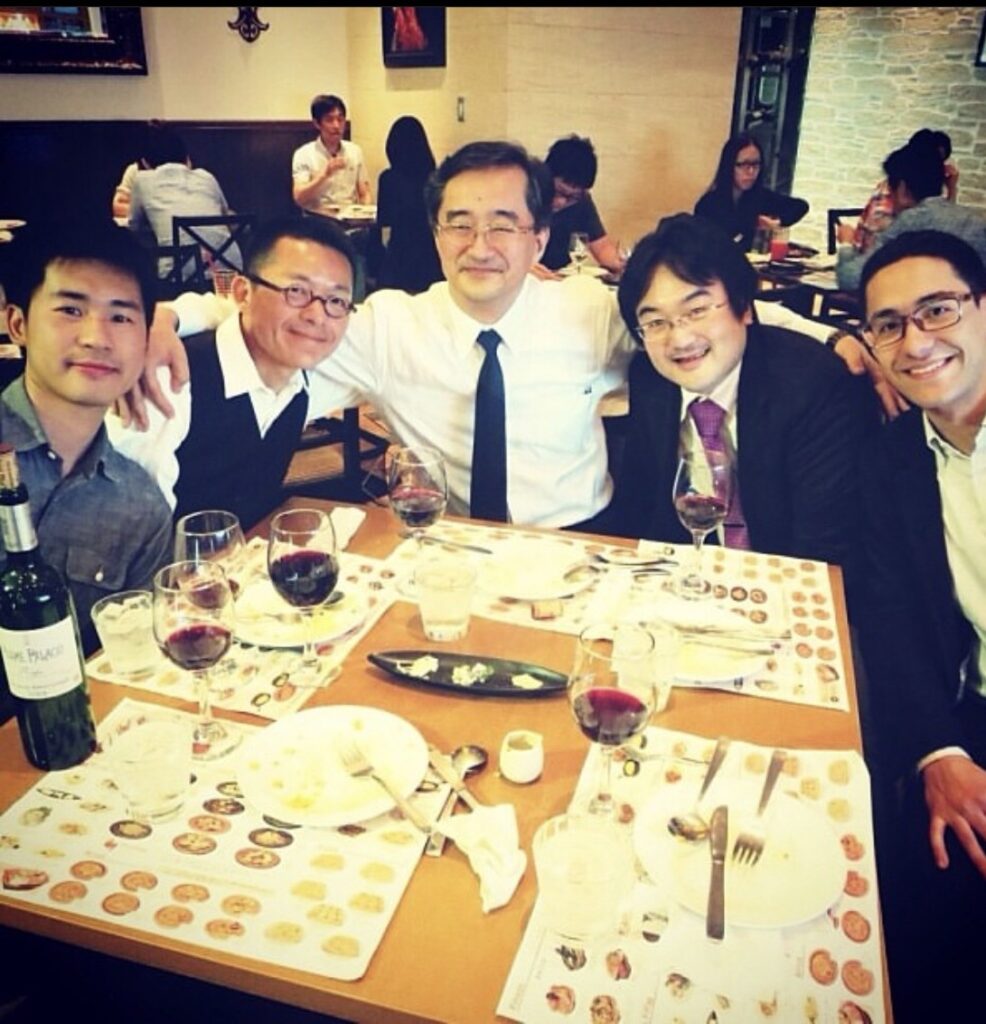
In the middle is Professor Fukunari Kimura, Lin’s advisor.
What Professor Kimura meant is that the advisor mainly guides the logic and concepts of the dissertation direction, while the actual operation and the techniques used to achieve the research objectives are left to students to take the initiative to figure out themselves. Using input method of typing in Chinese as an analogy, both can type, and the teacher may only know Cangjie, but he will encourage students to learn Zhuyin to keep up with the times.
How did Chin-Ho Lin get through this by himself? “Sometimes you get stuck!” This is the heartache of being a Ph.D. student. Sometimes he would go online to look up methods and forums, asking how to write code and how to run software, searching until the middle of the night. The path of research is lonely, especially in a foreign country. Professor Lin was able to get through this because of the support of his family. His girlfriend at the time, who later became his wife, also came to Japan to accompany him, learning Japanese and working at the same time.
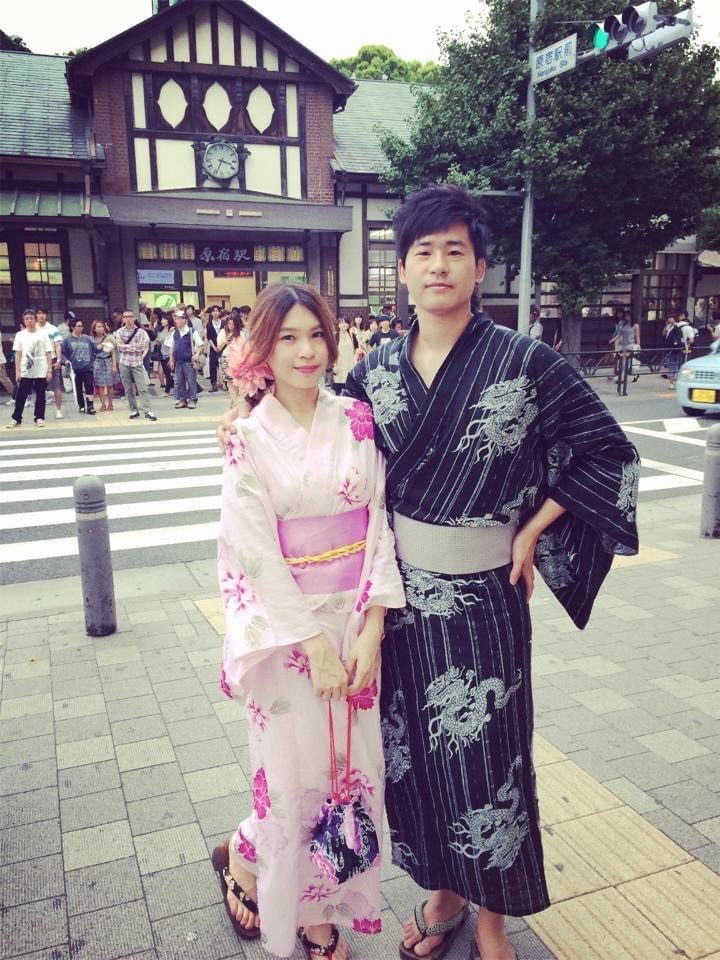
Not wanting to keep his wife waiting, Chin-Ho Lin wanted to graduate as soon as possible, and he was also under pressure to submit manuscripts for publication. It turns out that Ph.D. students must publish at least 3 or 4 articles in Japan before graduating; only then will they be recognized by the job market.
Even though Professor Lin had already had one paper accepted by SSCI, Professor Kimura was very strict and still wanted to train him. After he published a second, third, and finally a fourth paper, Lin was finally recognized by Professor Kimura and was able to return to his home country to teach.
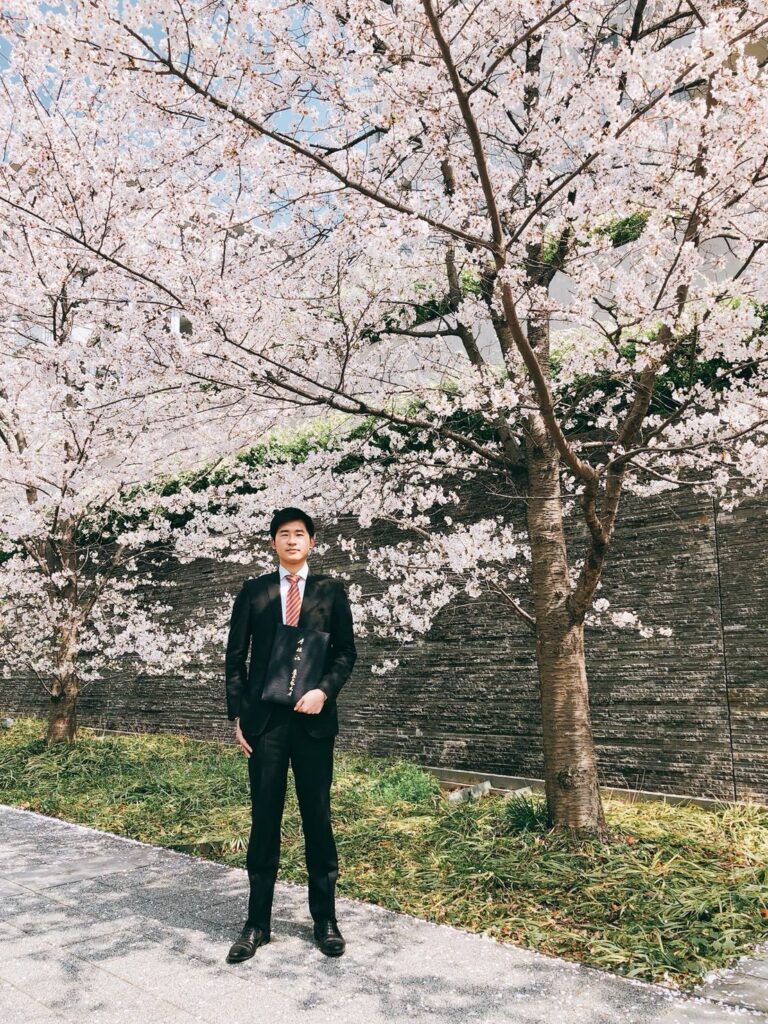
Learning economics through games helps students better integrate and apply their knowledge
Feng Chia University’s Department of Economics was Professor Chin-Ho Lin’s first stop as he entered the teaching profession. As a new teacher, Professor Lin would often stay up late preparing for classes and studying academics like many other scholars, never tiring of doing so.
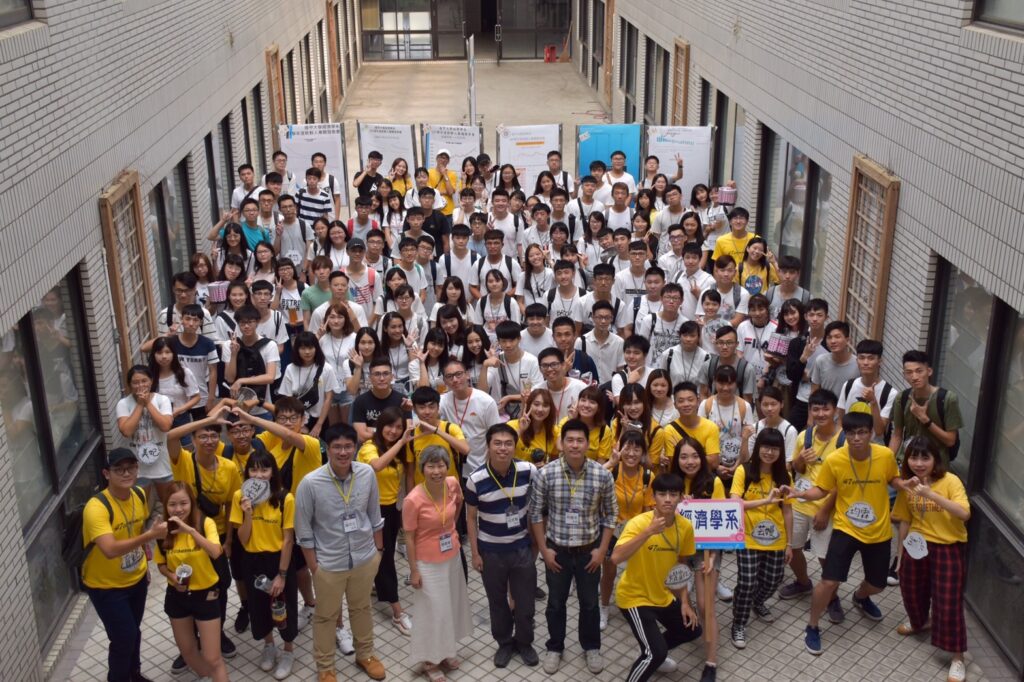
In order to make teaching more effective and easier for students to absorb, he made an effort to apply the pedagogy of “learning economic concepts through gameplay,” promoted by Associate Professor Pao-Chih Cheng of the Department of Economics at National Central University. When students learn economic concepts through gameplay, they have a more positive attitude toward what they have learned, and there are statistically significant advantages in short-term learning effectiveness as well as medium- and long-term memory.
Professor Lin once had his students play an action game, which he also played in the NSYSU Business Management class this semester: the teacher wants to sell a 50NT coin. A student can bid 1NT to win the bid, which is equivalent to earning 49NT as he has to pay the cost of the bid. If he does not win the 1NT bid, he has to pay 1NT to the teacher and the auction continues. If a student bids 2NT and does not win the bid, he has to pay 2NT, and so on. If the bid reaches 49NT, would you continue to bid?
Maybe some students will bid until 50NT so that the profit and loss are equal and it is not considered a loss. But then a very interesting phenomenon happens. Usually, students who bid 49NT will reluctantly continue to bet 51NT, even knowing that they will lose money. Professor Lin said, some students even bet until 200NT, unwilling to stop.
“This is the ‘sunk cost’ theory,” Professor Chin-Ho Lin explains. Sunk costs are costs that have already been incurred and cannot be recovered in any way once they have been invested or paid for. The concept of sunk costs is like buying a movie ticket and then realizing that the movie isn’t any good: should you leave or waste time watching to the end? The price of the movie ticket is the sunk cost.
“This way, the students will be able to immerse themselves in the situation and naturally have a strong impression of the theory of sunk costs.” He hopes that under his teaching, students will be able to understand and enjoy learning.
Professor Chin-Ho Lin keeps up with the latest developments, such as financial technology, and he once held the positions of Director, Global Village of Business Education and Industry-Academic Extension Service and Director, Fundamental Course Center at Feng Chia University. At that time, Hsiang-Tsai Chiang, Dean of Feng Chia University’s College of Business, planned to set up a smart retail lab, and Professor Chin-Ho Lin visited many unmanned stores and tried to implement such new technology on the campus. “Unmanned stores” have no shopkeepers, the goods are supplied through AI, and payment is made through sensors or scanning codes. “In the future, unmanned stores will become a trend.” Although the College did not introduce it until later, it became part of Professor Lin’s experience.
In terms of sustainability issues and the circular economy, Professor Lin also took a course on corporate sustainability management offered by the Taiwan Sustainable Energy Research Foundation, which is led by the former Minister of Foreign Affairs Eugene Chien, and even passed the sustainability manager certification.
“I think it’s good to keep up with the trends.” He is able to teach classes on the SDGs, how to develop and regulate the green and low-carbon economy, how to calculate the carbon inventory, and how to write CSR reports, giving back to students what he has learned.
Coming to NSYSU, Professor Chin-Ho Lin was pleased to notice that NSYSU students worked very, very hard. He used many “very”s in a row, marveling at the excellence of the NSYSU students. He also thanked the director of the Department of Business Administration and his fellow professors for their guidance. “It doesn’t matter how you fall down; it’s how you get up that matters.” He has fallen and gotten back up before, and now he has never been so resilient.
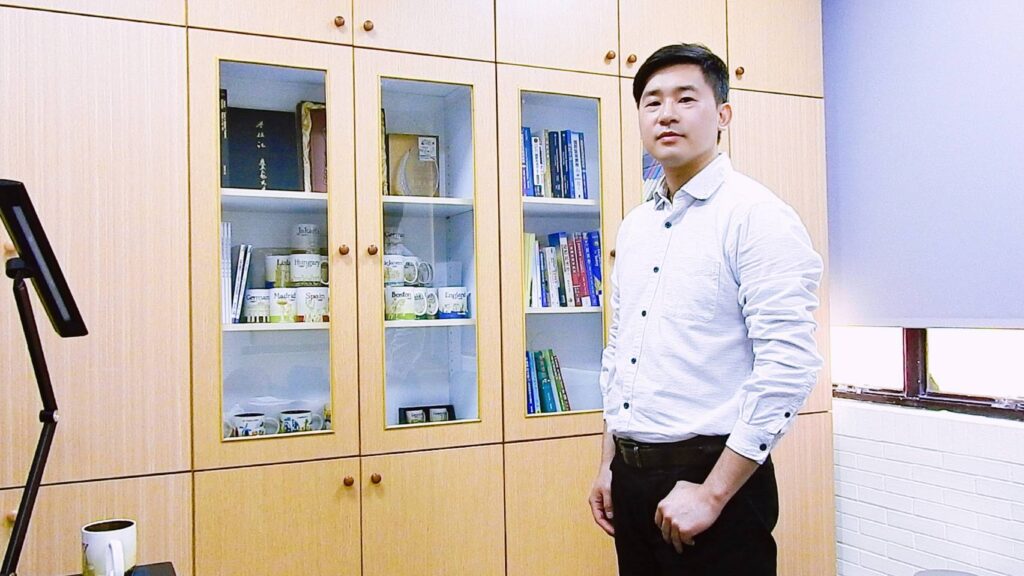
(Shen Yu, Media, College of Management / Interview Report)
